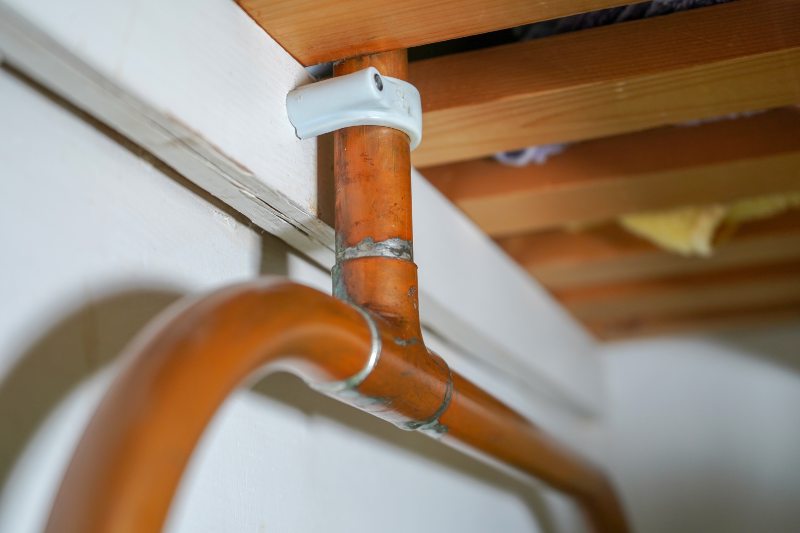
Copper is a popular repiping material, typically lasting decades before requiring repair or replacement. However, some copper pipes experience pinhole leaking, a problem that may develop as soon as two years after installation.
Pinhole leaks are a hidden plumbing problem that can go unnoticed for years because pipes are installed out of sight, and most homeowners fail to inspect them regularly. Such leaks can be hard to predict and difficult to remediate. If you have copper pipes, it’s wise to learn more about pinhole leaks and how to prevent them.
What is a Pinhole Leak?
Pipes can leak in different ways. Pinhole leaks are the result of pitting corrosion that develops from the inside out. The problem usually only affects a small portion of the pipe, eventually wearing away enough material for water to burst through and become a pinhole leak.
Signs of Pinhole Leaks
Pinhole leaks are notoriously difficult to find. The best way to identify a leak in your system is to conduct a simple test:
- Turn off all faucets and plumbing fixtures in your home and check the water meter.
- Refrain from running any water for two hours.
- Check the meter again. If the reading has changed, you could have pinhole leaks.
Other signs of leaky copper pipes include:
- Rising water bills
- Dripping sounds from behind the walls
- Visible water damage or mold growth
- Persistent musty odors
- Discolored copper pipes
- Condensation on your pipes
How to Prevent Pinhole Leaks in Copper Pipes
The inciting conditions that can lead to pinhole leaks include chemical damage, mechanical damage, localized damage, and non-uniform metal structures. Here’s how to prevent these problems from damaging your plumbing:
- Chemical damage: Variations in your water’s pH level can interact negatively with copper piping. Investing in a water conditioning system may help this problem.
- Mechanical damage: Sediment and heavy metals in the water supply can wear away at the protective oxide film coating your copper pipes. This could be problematic if you have hard water or unusually high water pressure. Installing a water softener and water pressure regulator can reduce mechanical damage to your pipes.
- Localized damage: Retrofitted or improperly installed pipes may have localized damage, causing them to leak. Replace any low-quality pipes as soon as possible.
- Non-uniform metal structure: If your water supply lines combine copper with other materials, the non-uniform metals may interact poorly. Replace outdated or mismatched joints, fittings, and pipe segments to avoid this.
Need Help Fixing Pinhole Leaks in Copper Pipes?
Most DIY fixes are ineffective and may even create new problems. That’s why it’s best to leave the job to a professional plumber in Seattle. Puget Sound Plumbing and Heating would be happy to help you find and repair leaking copper pipes. We have over 20 years of experience delivering top-notch plumbing services throughout the Puget Sound area. To learn more or schedule services with us, please call (206) 350-0079 or request an appointment online.


